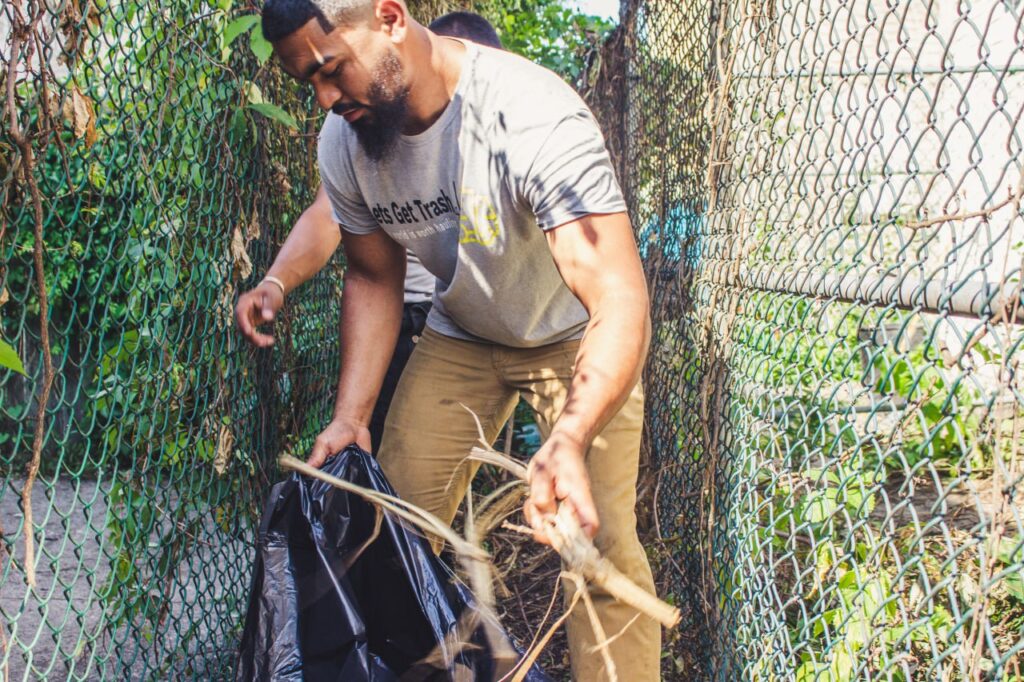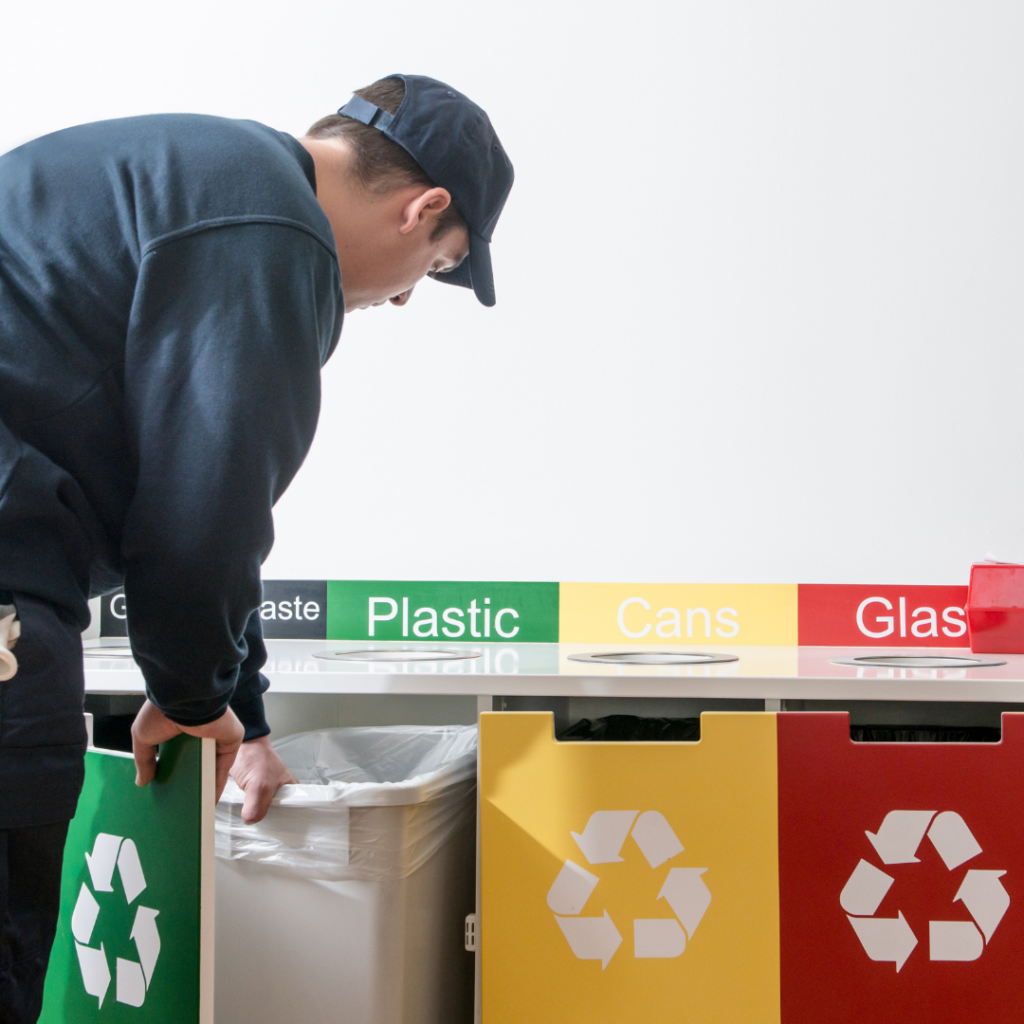The imperative to minimize environmental impact has become paramount for businesses of all sizes. Embracing sustainable practices not only benefits the planet but also enhances corporate reputation and operational efficiency. One pivotal area where businesses can make a significant difference is in managing their commercial waste. Implementing effective commercial waste solutions offers a pathway towards reducing carbon footprint and promoting a greener ecosystem. From recycling initiatives to efficient waste management systems, there exists a spectrum of strategies tailored to suit diverse business needs. In this article, we delve into the realm of commercial waste solutions, exploring innovative approaches that empower businesses to navigate towards a more sustainable future. Join us as we uncover the practical steps and transformative potential of mitigating environmental impact through conscientious waste management practices.
Understanding the Importance of Commercial Waste Solutions

Effective waste management not only contributes to environmental sustainability by reducing the volume of waste sent to landfills and minimizing pollution but also enhances resource conservation through recycling and reuse initiatives. Additionally, embracing commercial waste solutions aligns with evolving consumer preferences for eco-friendly practices, thereby bolstering brand reputation and attracting environmentally conscious customers. Moreover, by implementing sustainable waste management practices, businesses can mitigate regulatory risks and potential fines associated with improper waste disposal, ensuring compliance with environmental regulations. Ultimately, recognizing the significance of commercial waste solutions empowers businesses to not only reduce their carbon footprint but also drive positive social and environmental change within their communities.
Assessing Your Business’s Waste Generation

Identifying Waste Generation Sources
In addition to quantifying and characterizing waste streams, it’s essential to pinpoint the sources or departments within your organization responsible for generating the most significant amounts of waste. This may include production facilities, offices, warehouses, or specific operational processes.
Assessing Waste Management Practices
Evaluate your current waste management practices to determine their effectiveness in minimizing waste generation and maximizing resource recovery. Consider factors such as waste segregation, storage, transportation, and disposal methods. Identify any inefficiencies, gaps, or areas for improvement in your existing waste management infrastructure.
Analyzing Environmental Impact
Assess the environmental impact of your business’s waste generation, including factors such as greenhouse gas emissions, energy consumption, and resource depletion associated with waste disposal and treatment. Understanding the environmental footprint of your waste streams can motivate action towards implementing more sustainable waste management practices.
Engaging Stakeholders
Involve key stakeholders, including employees, management, suppliers, and waste management service providers, in the waste assessment process. Their input and collaboration are crucial for gathering comprehensive data, identifying opportunities for improvement, and garnering support for future waste reduction initiatives.
Setting Goals and Targets
Based on the findings of your waste assessment, establish clear goals and targets for waste reduction, recycling, and diversion. These objectives should be specific, measurable, achievable, relevant, and time-bound (SMART), providing a roadmap for guiding your organization towards more sustainable waste management practices.
Exploring Sustainable Waste Management Practices
Businesses today are increasingly embracing sustainable waste management practices to reduce their environmental impact. These practices include:
- Sustainable Packaging Solutions: Using biodegradable, compostable, or recyclable materials, and employing strategies like light weighting and right-sizing packaging.
- Source Reduction and Waste Prevention: Rethinking product design, manufacturing processes, and procurement practices to minimize waste generation.
- Recycling and Circular Economy Initiatives: Establishing comprehensive recycling programs and integrating recycled materials into new products to minimize waste.
- Composting Organic Waste: Diverting food scraps and yard trimmings from landfills to produce valuable compost for sustainable agriculture.
- Waste-to-Energy Technologies: Converting non-recyclable waste into renewable energy through processes like incineration, gasification, and anaerobic digestion.
- Extended Producer Responsibility (EPR): Holding manufacturers accountable for the end-of-life management of their products and packaging, promoting recyclability and closed-loop systems.
Implementing these practices not only reduces environmental impact but also promotes resource conservation and corporate responsibility.
Partnering with Waste Management Providers
Partnering with waste management providers is a strategic move for businesses aiming to reduce their environmental impact. These providers offer comprehensive solutions tailored to the specific needs of each business, including waste collection, recycling, and disposal services. By collaborating with reputable waste management companies, businesses gain access to expertise and resources that facilitate efficient waste management practices. Additionally, partnering with these providers ensures compliance with environmental regulations and promotes sustainable waste management strategies. Ultimately, such partnerships not only contribute to minimizing the business’s carbon footprint but also enhance its reputation as a socially responsible entity committed to environmental sustainability.
Why Partnering is Essential
Partnering with waste management providers offers businesses access to expertise and resources that may not be readily available in-house. These providers specialize in waste collection, sorting, recycling, and disposal, employing advanced technologies and industry best practices to optimize waste management processes.
Tailored Solutions for Specific Needs
One of the primary advantages of partnering with waste management providers is the ability to access customized solutions tailored to meet the unique needs of each business. Whether it’s a small retail store, a manufacturing facility, or a large corporate office, waste management providers can design comprehensive strategies that address the specific waste generation patterns and regulatory requirements of the client.
Compliance and Regulatory Support
Navigating the complex landscape of environmental regulations and compliance requirements can be daunting for businesses. Waste management providers serve as valuable allies in ensuring adherence to relevant laws and regulations governing waste management and disposal. By staying abreast of regulatory changes and industry standards, these providers help mitigate compliance risks and avoid potential fines or penalties.
Environmental Impact and Sustainability
Partnering with reputable waste management providers aligns businesses with their sustainability objectives and environmental stewardship initiatives. These providers prioritize sustainable practices such as recycling, composting, and waste-to-energy conversion, minimizing the environmental impact of waste disposal while maximizing resource recovery and conservation.
Cost-Efficiency and Resource Optimization
Effective waste management translates to cost savings and operational efficiency for businesses. Waste management providers leverage economies of scale, advanced technologies, and efficient logistics to optimize collection, transportation, and processing processes, thereby reducing overall waste management costs for their clients.
Conclusion
It’s evident that businesses hold significant power to positively impact the environment by adopting sustainable waste management practices. Let’s Get Trash offers tailored solutions for businesses in Philadelphia, PA, aiming to reduce their environmental footprint through efficient bulk item pickup services. By partnering with Let’s Get Trash, businesses not only fulfill their corporate social responsibility but also contribute to the collective effort of preserving our planet for future generations. Together, we can transform the way commercial waste is handled, paving the way for a greener, cleaner tomorrow. For inquiries or to schedule a consultation, contact Let’s Get Trash at (215) 791-6239. Let’s take proactive steps towards a more sustainable future – for our businesses, our communities, and our planet.







